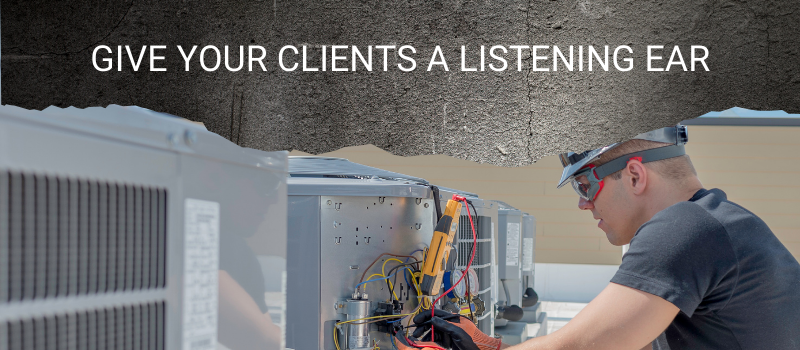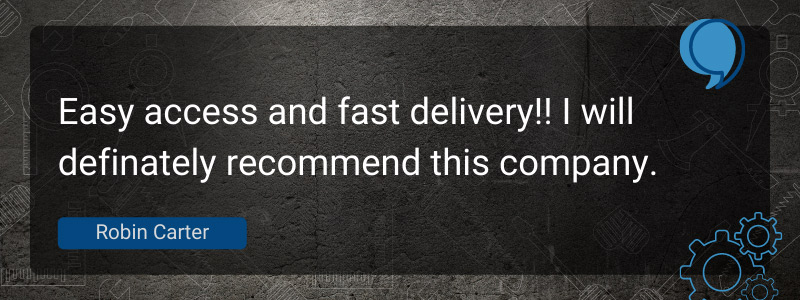.png)
Whether you’re a new homeowner or a seasoned HVAC user, there are many essential factors to know before installing a new HVAC system.
As a result, the HVAC buying process can overwhelm most people, since people tend to mistrust what they don’t understand.
If you can create trust with clients, you’ll reap huge benefits in the long run. Client trust guarantees return business, referrals, and a competitive edge in the industry.
That said, as trust is a precious commodity, honest contractors don't have to be few and far between.
So how do you create trust with clients and win HVAC business?
Stay updated on regulations by setting up online alerts from the relevant sites. You'll get immediate updates on any changes, which you can then inform your customers through social media or your blog.
Here’s a table showing where you can get relevant information to keep your readers updated:
HVAC system regulations and standards are dynamic, and staying up to date can give you a much-needed competitive edge.
Use simple language to help your clients understand how the changing regulations impact their HVAC experience.
For example, Congress passed the American Innovation and Manufacturing (AIM) Act at the end of 2020. The Act directed the Environmental Protection Agency to phase down the production of listed hydrofluorocarbons (HFCs).
This would maximize reclamation and ease the transition to new technologies.
How does this impact your client?
Production and imports of HCFC-22 in the United States ended on January 1, 2020. Yet, your clients would continue using it in their existing systems for as long as necessary.
Helping your clients understand this regulation eases any pressure they might have with their HCFC-22 systems.
In summary, industry publications and associations are excellent sources of information. They update you on the constantly changing regulations and standards.
Installing products like air conditioners and heat pumps needs technical expertise. Providing the installation service for free would be an excellent after-sales service.
Another aspect of after-sales service is end-user training. This is crucial in the HVAC industry because of the industrial machinery involved. It’s critical to walk with your customer until they completely understand the product you’re selling to them.
Trust-building doesn’t stop with the initial installation; it’s a continuous process.
For example, for a limited time, you can provide a free product replacement in the event of any issues.
However, this is subject to specific terms and conditions. In some cases, you may replace the entire device, while in others you may change only the defective part.
In the event of a return, the customer should return the product to you and be issued with store credit, a replacement product, or be refunded the amount.
Use your in-depth industry knowledge to win trust with HVAC system clients. Keep them in the loop about the trends, changes in technology, and anything else that can help them feel comfortable about their buying choices.
Most HVAC customers understand very little about the equipment they buy because of its technicalities.
Lack of knowledge about HVAC systems creates suspicion among buyers and prospects, making it hard to develop trust—but not impossible.
After all, they want trouble-free equipment that can serve them for a long time.
More often than not, the first stop for HVAC system clients searching for information is online. But what they get online is not always accurate, and this is where you can be most helpful.
Set up social media accounts and provide answers to frequently asked questions. Provide tips and tricks on keeping their equipment working at optimal levels and create "how-to" videos for them.
However, providing helpful information alone is not sufficient to make you a trusted industry expert—you also need to present it in an easy-to-understand way.
For instance, if the price for repairing a broken heat pump is hefty, take time to explain what’s needed and why it costs so much in a language they understand.
When you help your clients understand technical aspects, they consider you an expert and are likely to reach out to you when the need arises.

Every client's needs are unique. Spend time listening to them to win them over to your side and ask relevant questions to understand their concerns and needs.
For example, in most cases, clients know very little about how the HVAC system works.
Explore the various areas they’re likely to have trouble with, such as air quality and humidity control. You can also go the extra mile and guide them to their ideal family temperature and humidity.
However, only make informed suggestions after you’ve understood the client's concerns. Ideally, have a checklist to guide your interaction and give detailed advice at the end.
Giving your clients a listening ear also means responding to their queries on time. Nobody fancies waiting for more than a day with a broken furnace in freezing temperatures.
The consequences of a slow response are dire:
Allow your clients to explain the issue and give them exemplary service. It makes them feel valued, improving the overall experience. Go beyond answering the phone and make a connection with them.
A thank you note after the sale shows appreciation to your clients. But don't stop there.
You can send date-of-sale anniversaries to your clients to show that you still care about them. Personalize the note, sign it, and remind them to schedule a maintenance appointment.
For example, you should service your clients’ HVAC systems twice a year. Do so once in the fall (furnace) and once in the spring (air conditioner). Follow through on this scheduled maintenance without waiting for them to remind you.
Reliability and consistency are essential ingredients for trust in the industry.
Keep your customers happy to build your online reputation. Doing this attracts positive reviews, and avoids negative ones (if possible).
A shopper’s negative review may not always be correct, but their voice is more important than the paid ads you post. People tend to listen more to others that have purchased the product or service you’re offering.
Keep track of the reviews through reputation monitoring tools such as Google Alerts and Social Mention (for social media). Also, respond to every review as promptly as possible.
Negative reviews will always be there, no matter how good your products or services are. But your response is what matters most.
Here’s how to respond appropriately to negative reviews:
Your online reputation is an important asset that can bring trust and earn more business. Build it and guard it keenly.
Your employees' appearance impacts the overall feeling your clients have about your business.
This impact is far better than any sales pitch you may come up with. Your physical appearance immediately conveys your level of professionalism.
For example, older, more formal employees convey a sense of steadiness and experience. But young, trendy employees can create the idea of a fast-paced, edgy company.
Young employees who appear unprofessional may worry older clients who entrust their HVAC needs to your business.
Before the initial meeting, research new customers to understand their styles and personalities. If your appearance differs significantly from theirs, you'll work harder to persuade them of your abilities and win their trust.
Industrial Stores focuses on providing exceptional services. We understand the value of quality products that help you win trust with clients.

Here’s what one satisfied client said:
“I just wanted to let you know that the motor end bell purchased through your online company worked out \"Great!\" I was able to do a self-install and I couldn't be happier to have saved hundreds of $,s! With that extra money I saved, I was able to buy flowers and King crab legs for my wife's birthday. She was happy to have a husband that not only got her flowers and cooked her King crab legs but a husband that was able to fix the furnace when the temps were dropping into the teens. Kudos to Andy for giving me the confidence boost I needed to get my 10-year-old Goodman furnace to work again.!!”
Ruben Marquez, Madison, WI 53711
Contact us today for more information.